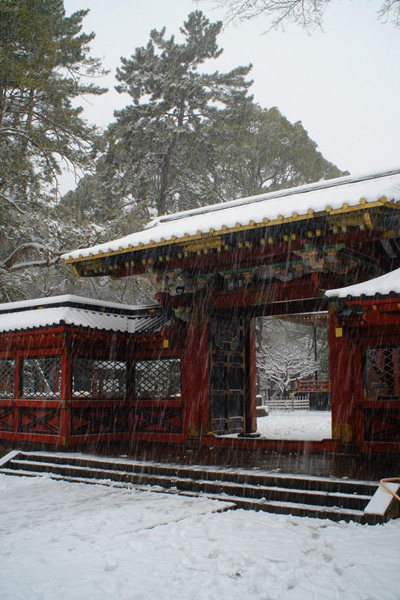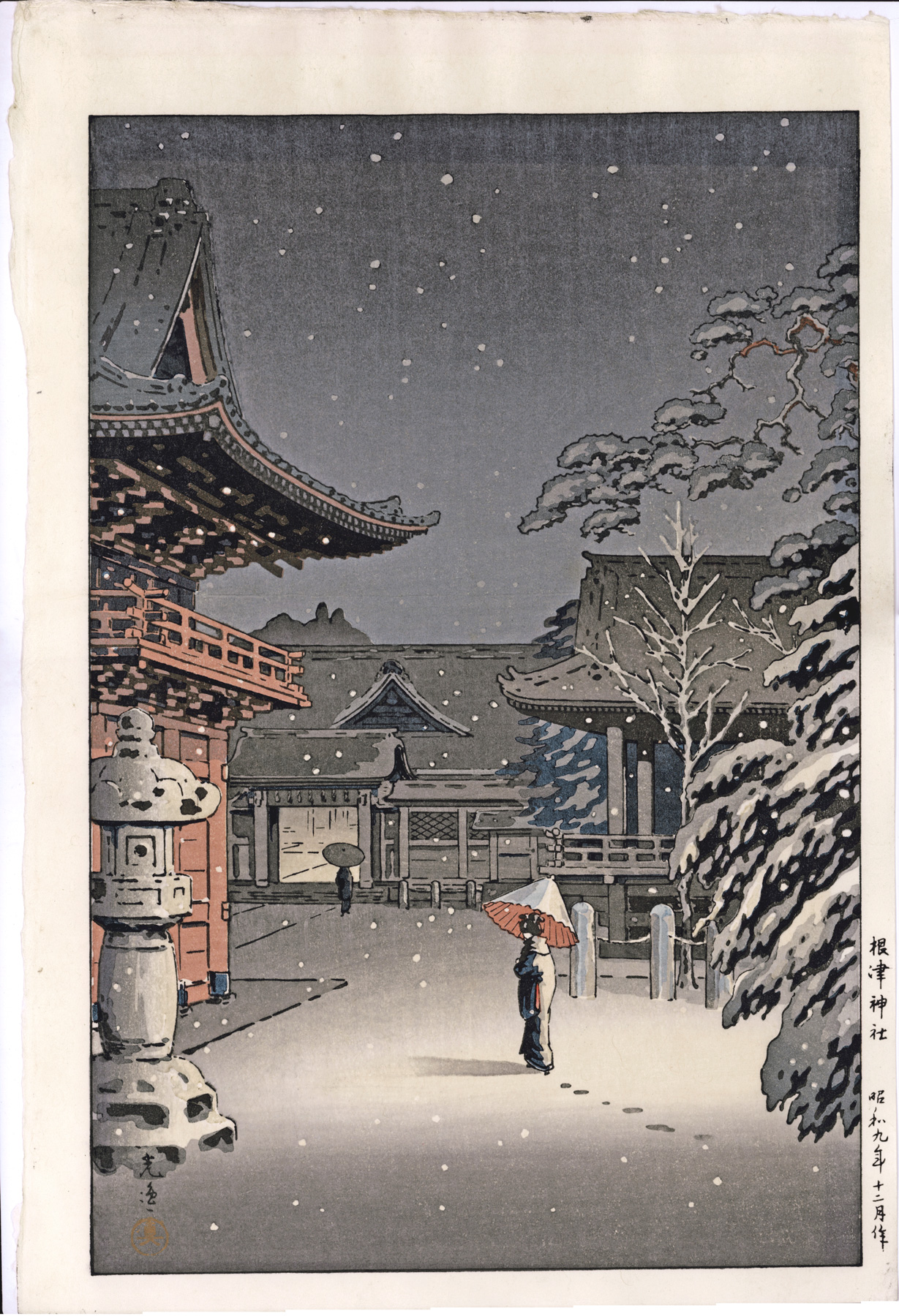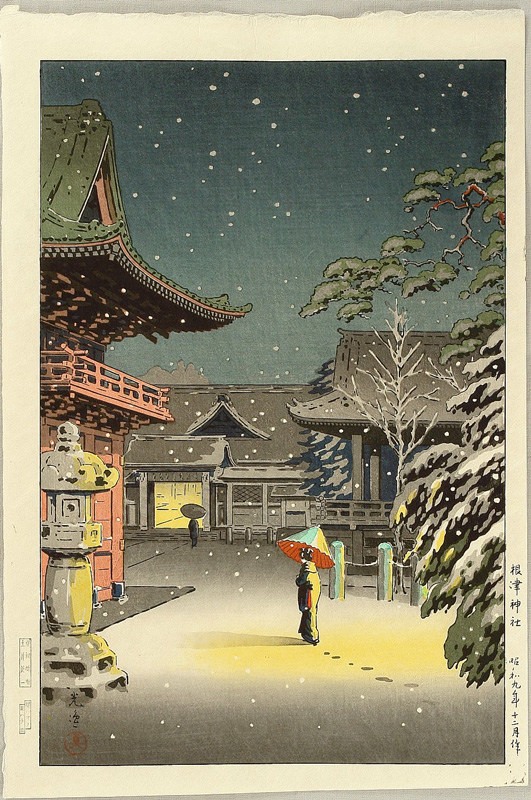About This Print
As falling snow covers the ground, a loan woman leaves only her footsteps in Nezu Shrine, one of the oldest Shinto shrines in Tokyo, established in 1705.
Originally released in December 1934, this collection's print lacks any publisher seals making its likely printing date sometime between 1960 and the early 1990s. There is at least one other state of this print, as shown below.
While Kōitsu was a master in rendering light, the rendering of the light in the above state of the print is a bit surreal, with the glaring yellow electric light from an unseen source dominating the design. I much prefer the more subtle handling of the light evident in this collection's print. I have seen one pre-WWII print (based upon the publisher seals) that is similar to this collection's print, suggesting the original edition may have used the subtler coloration.
Nezu Jinja
Source: Japan: the Official Guide, Japan National Tourism Organization website www.jnto.go.jp/eng/location/spot/shritemp/nezujinja.html
The Nezu-jinja Shrine is said to have been established over 1,900 years ago by the legendary priest Yamato Takeru no Mikoto in Sendagi with Susanoo no Mikoto as the chief deity. In 1705, the 5th shogun Tsunayoshi relocated it from Sendagi to Nezu to commemorate the adoption of Ienobu as his successor and the 6th shogun Ienobu chose it as the guardian deity. The Gongen-style architectures (typical of modern shrines) of Honden (main sanctuary), Haiden (worship hall), Heiden (offering hall), Karamon (Chinese-style gate), Romon (two-story gate) and Sukibei (lattice-windowed wall) are designated as nationally Important Cultural Properties.

Nezu Jinga karamon today
image source: https://o34ko.net/gallery_01/snowy-eezu-shrine/
Print Details
| IHL Catalog | #1191 |
| Title | Nezu Shrine 根津神社 |
| Series | originally released as part of the series Tokyo Views 東京風景 |
| Artist | Tsuchiya Kōitsu (1870-1949) |
| Signature |  |
| Seal | shin 真 (see Signature above) |
| Publication Date | originally issued December 1934 (Showa 9). This print is a later impression, produced after the artist's death. (See note under Publisher below.) |
| Edition | post-WWII |
| Publisher | Doi Hangaten - 土井版画店 (Doi Sadaichi 土井貞一) Note: No publisher's seal is present on this print. According to the Koitsu.com website http://www.koitsu.com/Research/dating_koitsu_prints/dating_koitsu-prints.htm the absence of a publisher seal indicates an unauthorized printing. To quote: "Based on an analysis of the Koitsu prints saved in my Koitsu database I would estimate around 20% of Doi-published Koitsu prints do not have any publisher seals. If your print has publisher seals they will be found in the lower area of the left margin and look similar to those shown below in the Doi section. Dating evidence suggests these appeared in the market as far back as the late 1960s until the 1990s. There was only one printer active during all this time, Seki, who was dismissed by Doi Eiichi in the early 1990s for "activities that undermined the Doi publishing house" (no doubt selling unsealed prints on the side was a part of that activity). If your Doi print has no publisher seals in the lower left margin it dates to this period." |
| Carver | |
| Printer | |
| Impression | excellent |
| Colors | excellent |
| Condition | excellent - tape remnants top verso |
| Miscellaneous | |
| Genre | shin hanga (new prints) |
| Format | oban tate-e |
| H x W Paper | 16 1/4 x 10 7/8 in. (41.3 x 27.6 cm) |
| H x W Image | 15 7/16 x 10 1/8 x in. (39.2 x 25.7 cm) |
| Collections This Print | |
| Reference Literature | The Catalogue Raisonne of Tsuchiya Koitsu Meiji to Shin-Hanga, Watercolours to Woodblocks, Ross F. Walker and Toshikazu Doi, Ohmi Gallery Publishing, 2009; Koitsu.com site reference TK-DH-16 |
last revision:
8/21/2021



